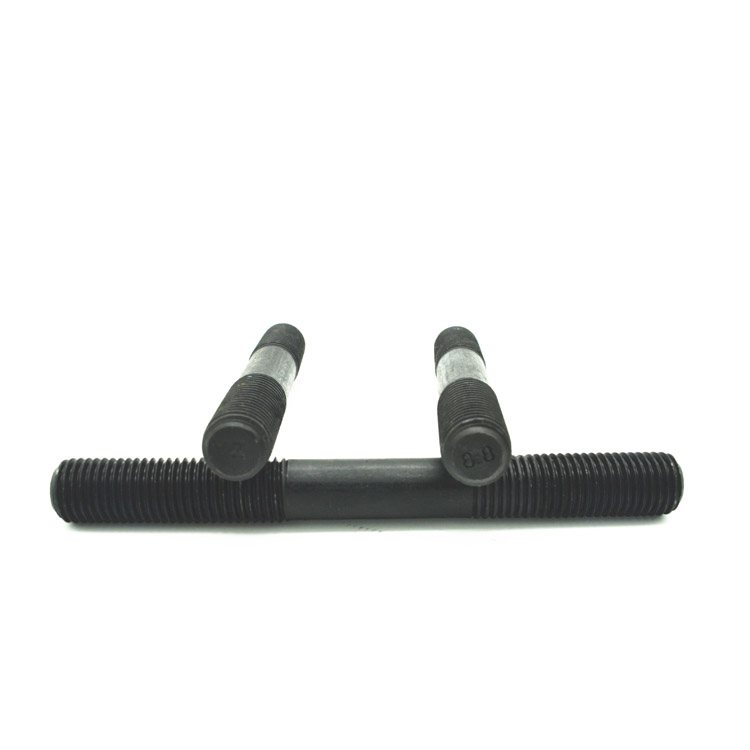Suppliers of 8-inch Screws for Various Applications and Industries
Dec . 01, 2024 13:56 Back to list
Suppliers of 8-inch Screws for Various Applications and Industries
The Importance of Choosing the Right 8-Inch Screws A Guide for Suppliers
When it comes to construction and manufacturing, the choice of screws can significantly impact the quality, strength, and longevity of a project. Among the myriad of options available, 8-inch screws have garnered attention for their versatility and effectiveness in various applications. For suppliers, understanding the intricacies of these screws is essential to meet the requirements of clients and ensure customer satisfaction.
Understanding 8-Inch Screws
8-inch screws are commonly used in both residential and commercial projects due to their length and strength. These screws are typically made from materials like stainless steel, carbon steel, or other alloys, which offer varying levels of corrosion resistance and tensile strength. Their size makes them ideal for fastening large timber pieces, securing heavy structures, and even in machinery where robust fastening is necessary.
The dimensions of an 8-inch screw provide a greater holding power, making them suitable for tasks such as anchoring beams, framing, and more. The choice of screw type—whether wood screws, machine screws, lag screws, or self-tapping screws—depends on the specific requirements of the application. Each type has its unique features, and understanding these distinctions is crucial for suppliers to guide their customers effectively.
Market Demand for 8-Inch Screws
In recent years, the demand for 8-inch screws has surged, driven by the booming construction industry and the rise of DIY projects among homeowners. Suppliers must stay attuned to market trends to stock up on the right quantities and types of screws to meet varying customer needs. Recognizing the growing emphasis on sustainable materials, there has been a shift towards screws made from eco-friendly materials or those that have minimized environmental impact during production.
Moreover, the proliferation of online marketplaces has made it easier for suppliers to reach a broader customer base. This shift necessitates suppliers to not only maintain quality but also ensure competitive pricing and efficient delivery mechanisms. As a supplier, having a robust strategy to adapt to these changes can set you apart from competitors.
inch 8 screws suppliers

Quality Assurance
When dealing with 8-inch screws, the importance of quality cannot be overstated. Inferior screws can lead to structural failures, posing safety hazards and leading to costly repairs. Therefore, suppliers should prioritize sourcing screws from reputable manufacturers who adhere to industry standards. Certifications such as ISO and ASTM can serve as indicators of quality and reliability.
In addition to sourcing high-quality products, offering customers comprehensive information about the screws, including material specifications, recommended applications, and load capacities, can enhance their purchasing decision. Suppliers that invest time in educating their clients about the importance of choosing the right screws tend to foster long-term relationships and customer loyalty.
Custom Solutions and Innovations
As construction techniques evolve, so do the demands for specialized screws. Suppliers that offer customized solutions can tap into niche markets where standard products may not suffice. This could involve designing screws with specific coatings for corrosion resistance, unique threading for better grip, or even offering screws in varied lengths to suit specific applications.
Moreover, embracing technological innovations, such as smart screws that integrate sensors for monitoring structural integrity, can position suppliers as forward-thinking leaders in the industry. Incorporating the latest technologies not only enhances product offerings but also attracts attention from larger construction firms looking to modernize their processes.
Conclusion
The market for 8-inch screws presents a wealth of opportunities for suppliers willing to invest in quality, knowledge, and innovation. By understanding the nuances of these products, meeting the evolving needs of the market, and prioritizing customer education, suppliers can establish themselves as trusted partners in the construction and manufacturing industries. As the demand for reliable fastening solutions continues to grow, those who adapt and innovate will thrive, ensuring their role in building a safer and more efficient future.
Latest news
-
High-Quality Panel Stud Bolt Reliable Panel Stud Bolt Factory & Suppliers
NewsJul.08,2025
-
High-Precision Fine Thread Locknuts Manufacturer & Supplier Custom Solutions
NewsJul.08,2025
-
PH Imperial Stud Bolt – High Strength Fasteners from Leading Supplier & Factory
NewsJul.07,2025
-
High-Quality Allen Wrench Bolts Leading Factory, Company & Suppliers
NewsJul.07,2025
-
Wholesale Ball Stud Bolt - High Quality Supplier & Factory Price Reliable Wholesale Ball Stud Bolt Company
NewsJul.06,2025
-
High-Strength Alloy Bolts Manufacturer & Supplier Quality Alloy Fasteners Factory
NewsJul.06,2025
